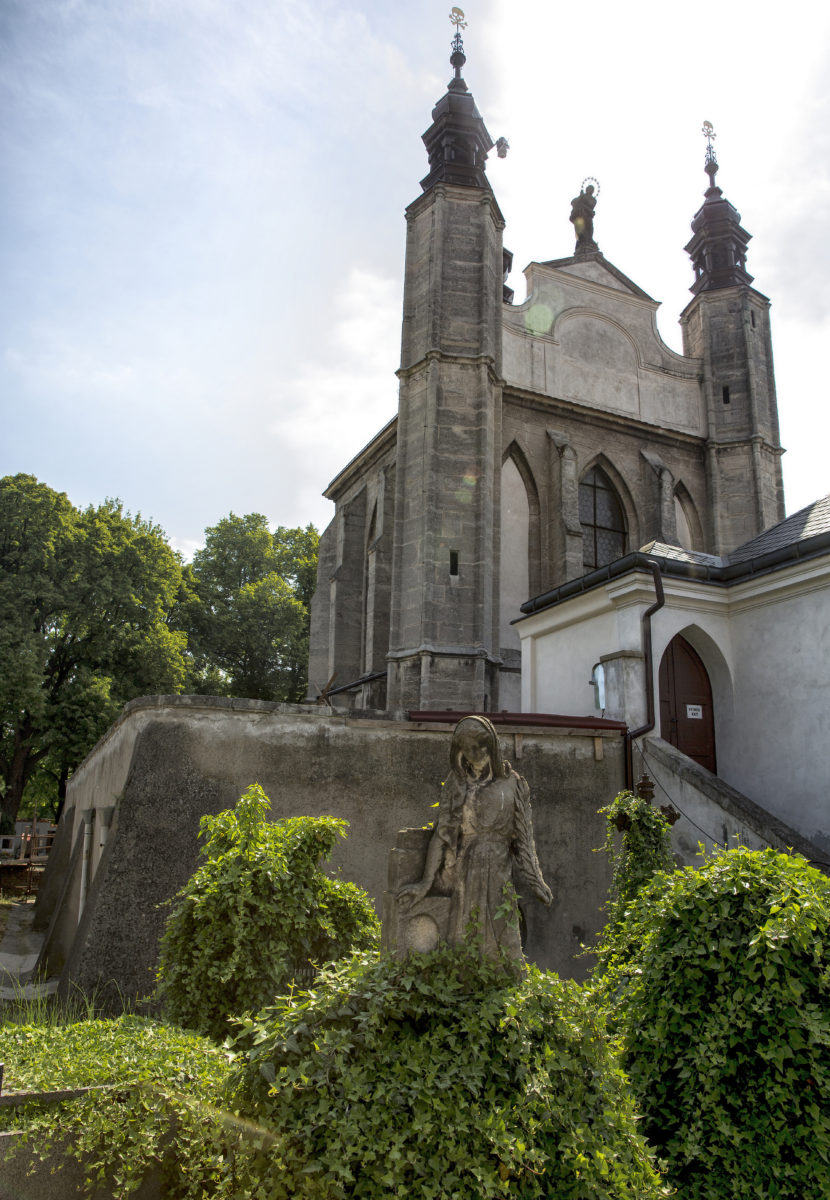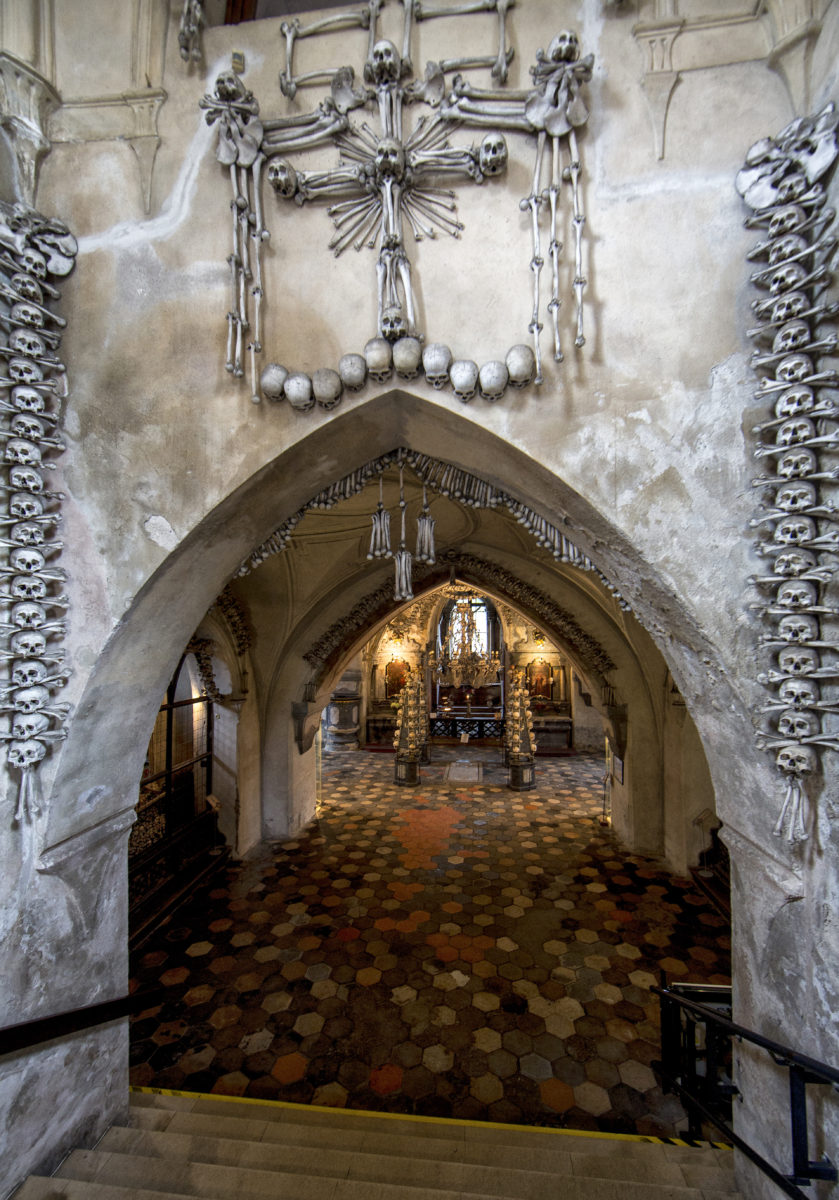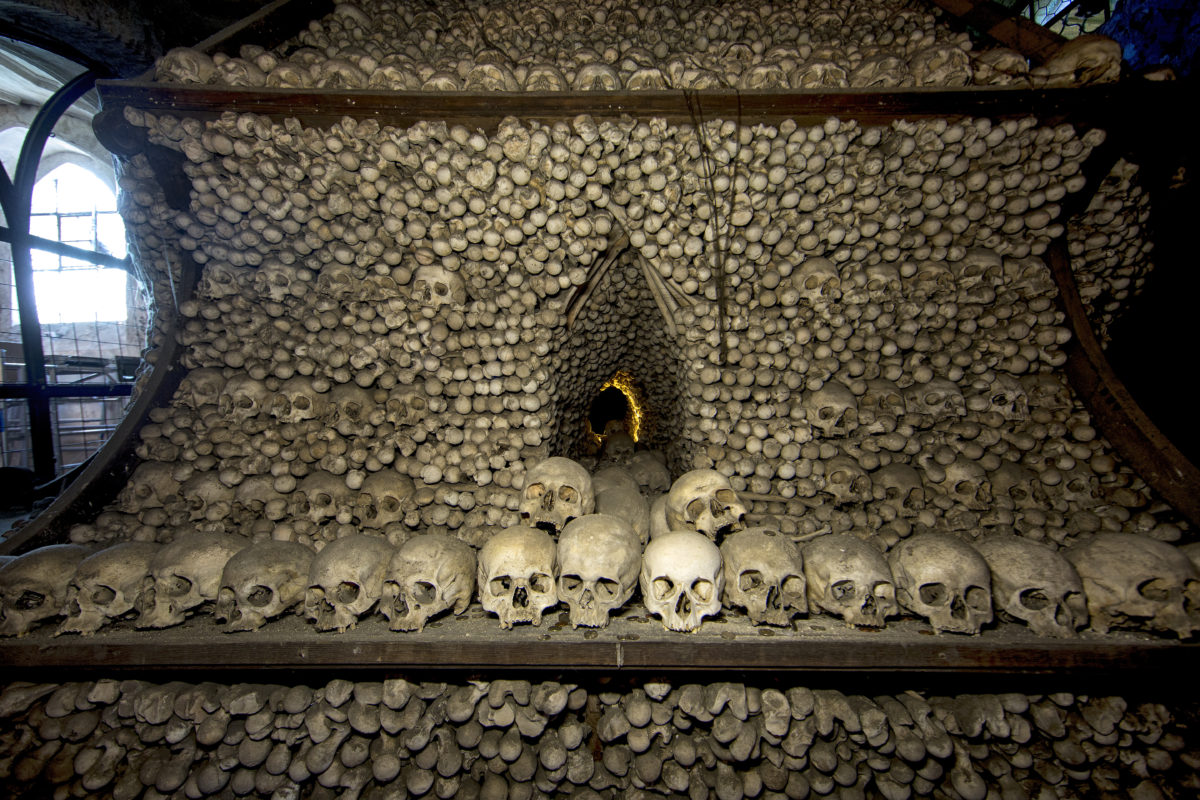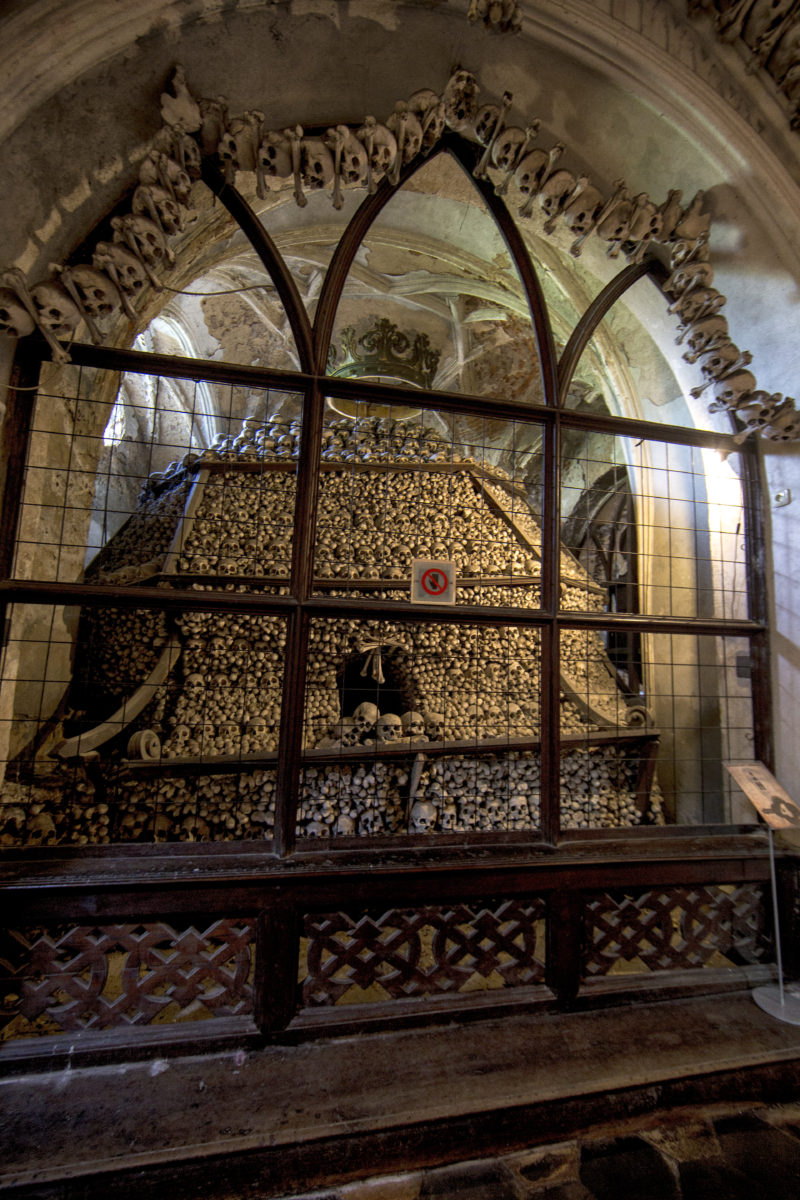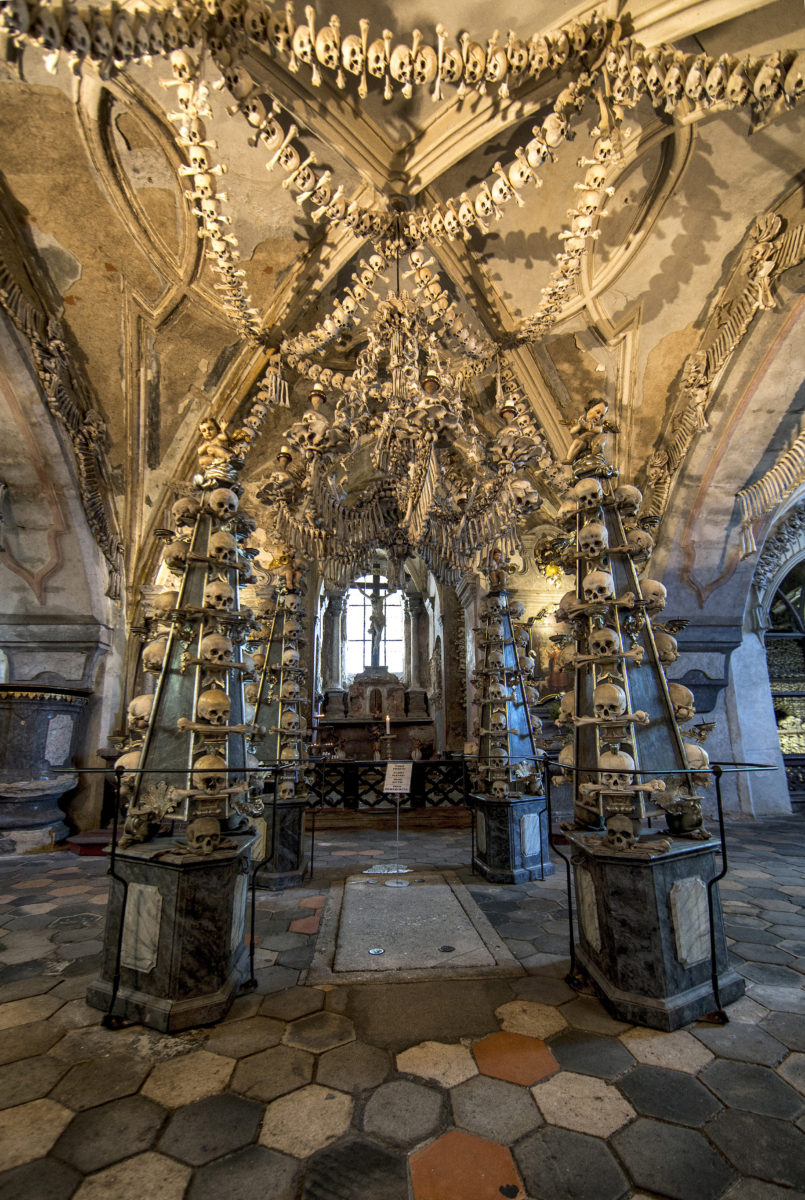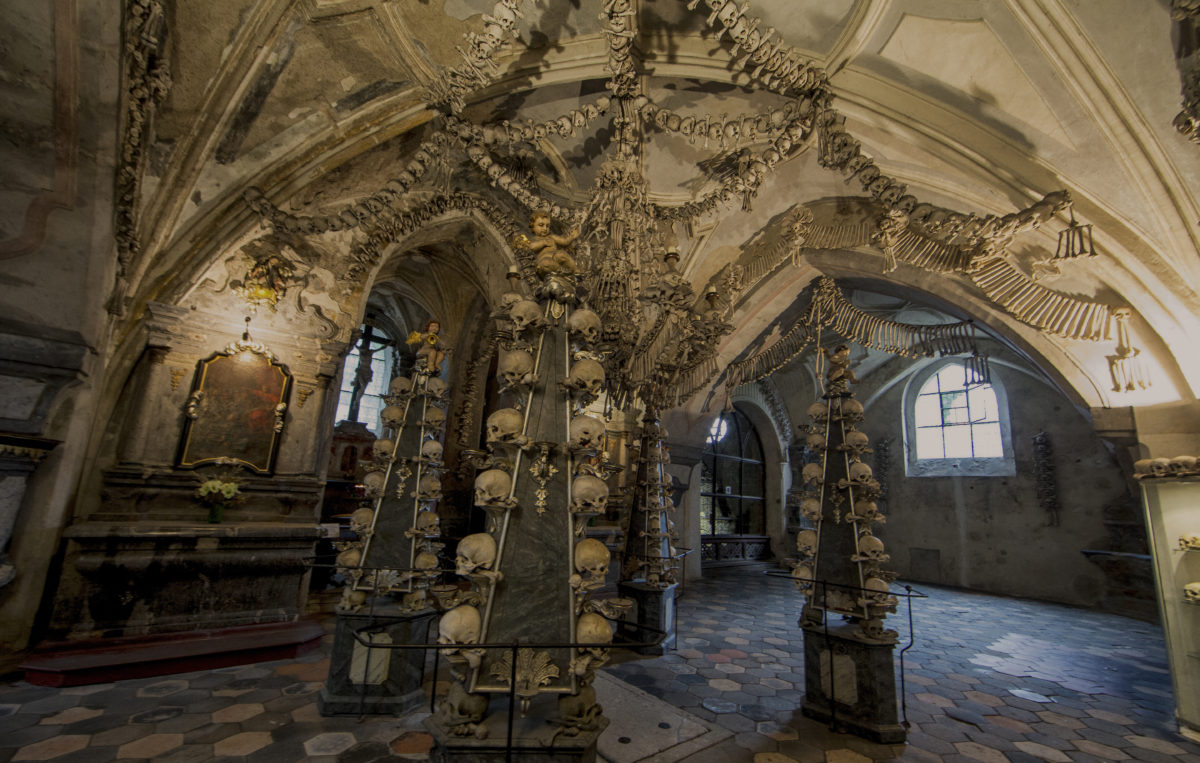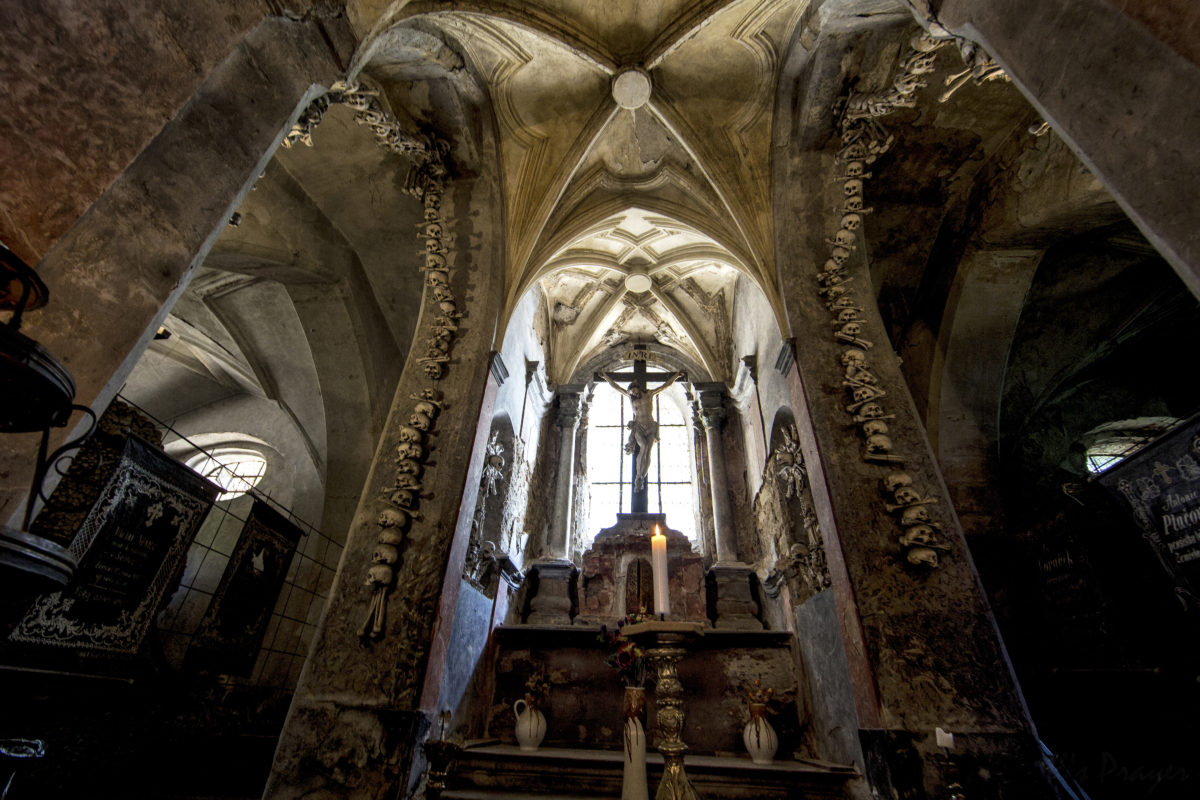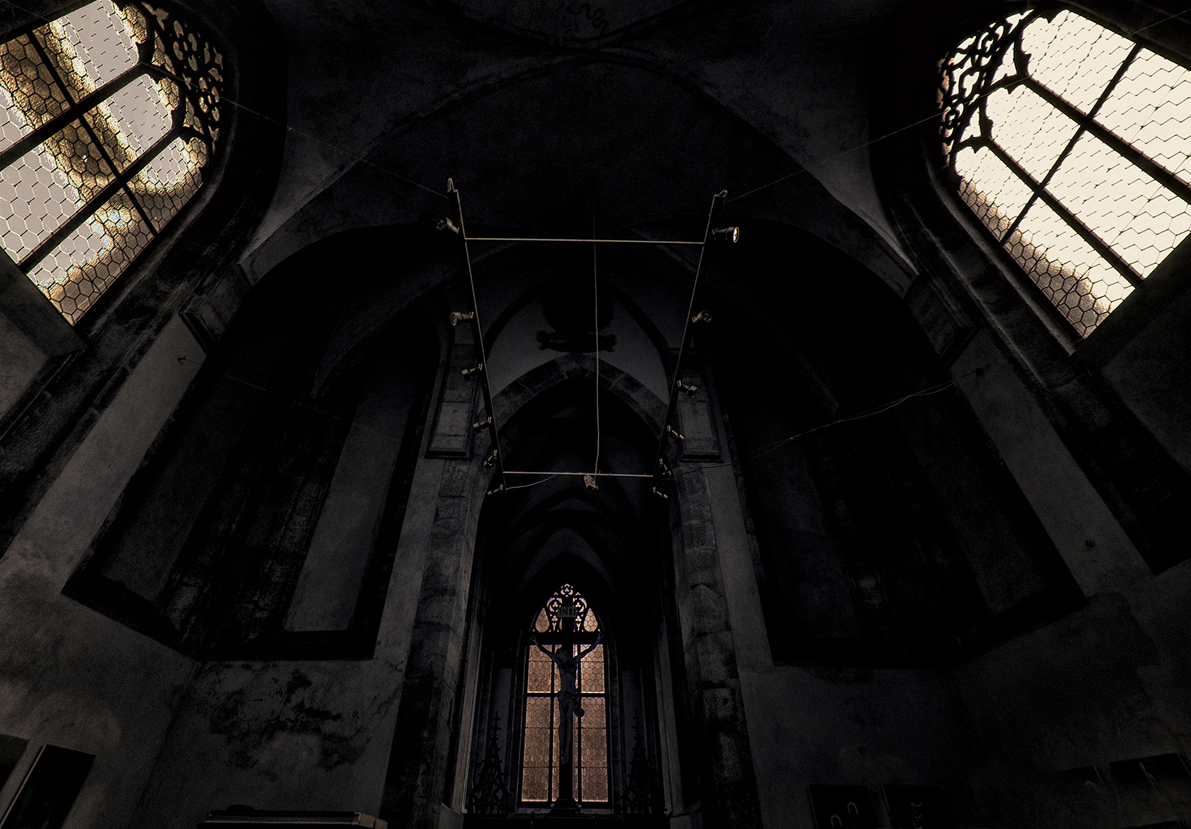The Cemetery Church was part of the oldest Cistercian Monastery in Bohemia, founded in 1142. Around 1278, Henry the Abbot of the Cistercian Monastery of Sedlec visited Golgotha, the site where Jesus was crucified, and bought back with him a small amount of earth which was sprinkled over the abbey cemetery. This made the cemetery a very sought after burial ground throughout Central Europe. Around the year 1400, a Gothic church was built in the centre of this cemetery.
During the plagues in the 14th Century, it is estimated that more than 30,000 dead were buried here. In the spring of 1421, the Hussite troops captured Sedlec and more than 10,000 dead were buried here. Around the end of the 15th Century, the area of the cemetery was reduced and the bones and skeletons from the abolished graves was moved into the Ossuary building.
According to legend, in the 15th Century, a half blind monk arranged the skulls and bones in the ossuary into pyramids and, upon completion, his sight was miraculously restored.
The Sedlec Monastery was abolished in 1783 by Joseph II. The property of the Abbey was purchased by the Schwarzenberg family.
In 1870, Frantisek Rink, a woodcarver, was employed to put the bones in some order. Rint made chandeliers and even arranged the bones in Coat of Arms of the Schwarzenberg family.
Around one hundred metres away from the Cemetery church is the Cathedral of Our Lady of Sedlec, which once housed the Cistercian Monastery. Today the Cathedral of the Assumption of Our Lady of Sedlec still stands, housing a tobacco factory.
The Codex Gigas, or Devil’s Bible, was pawned to the Cistercians of Sedlec from sometime after 1224 to around 1295, and most probably housed either at the Sedlec monastery or in this Cemetery Church.
